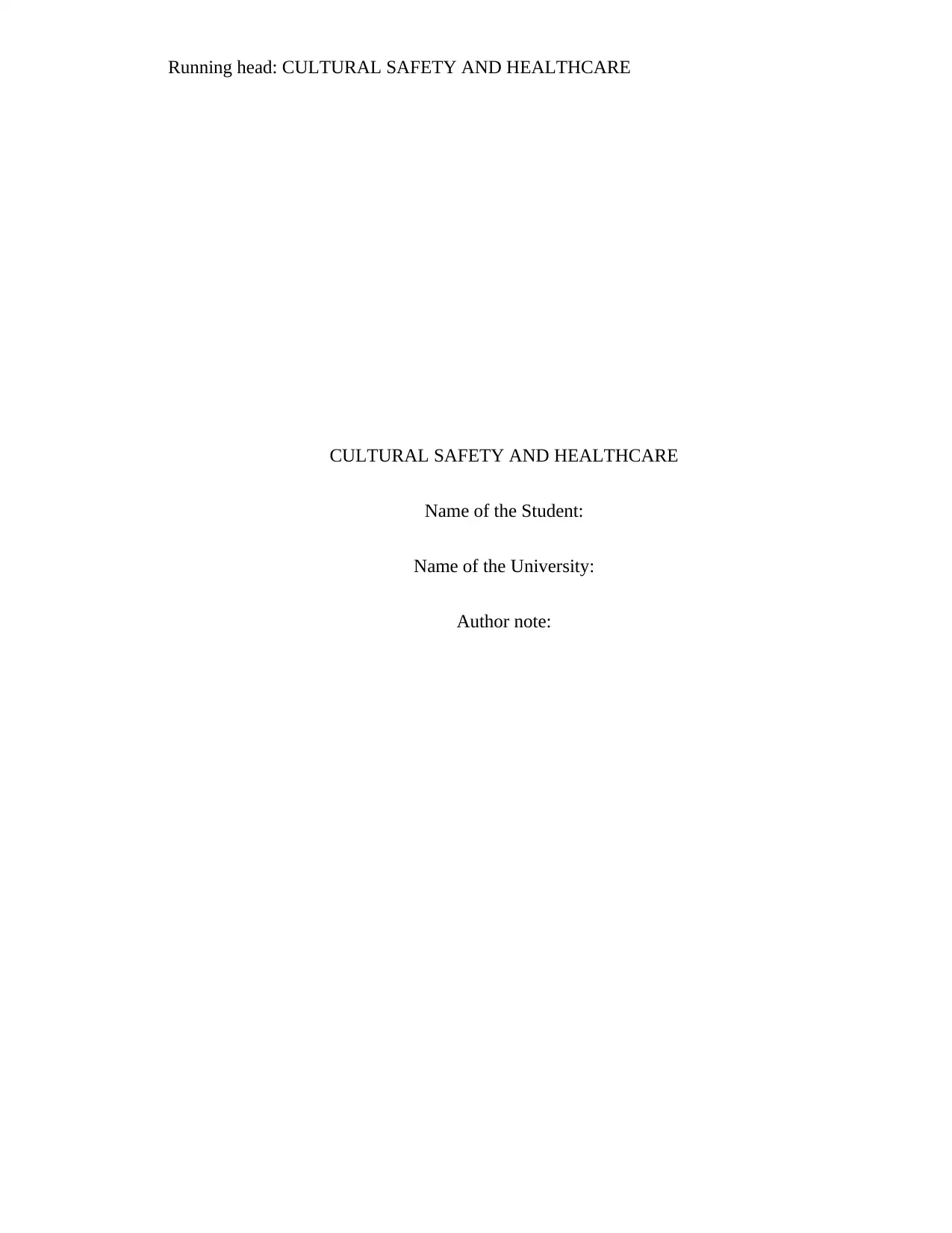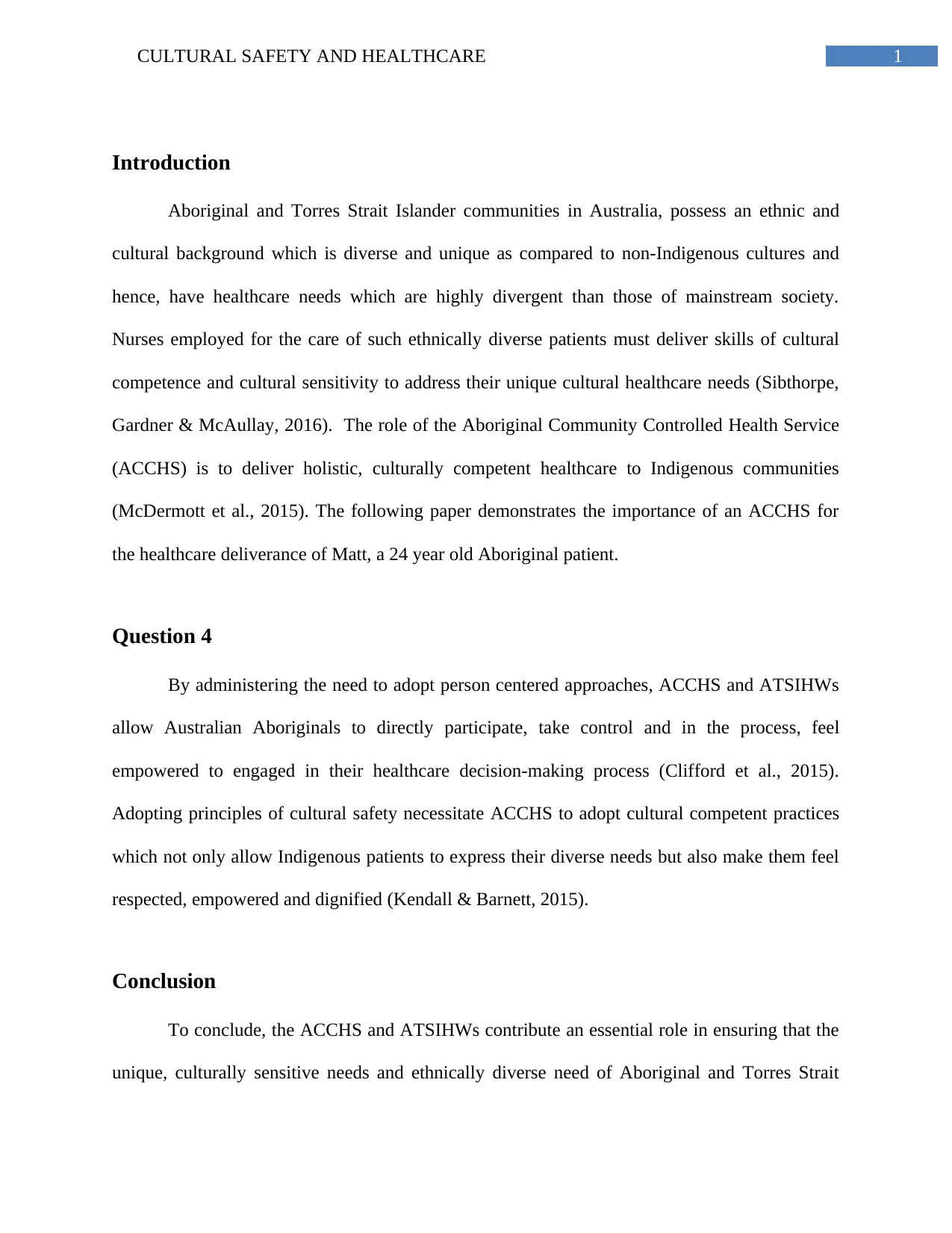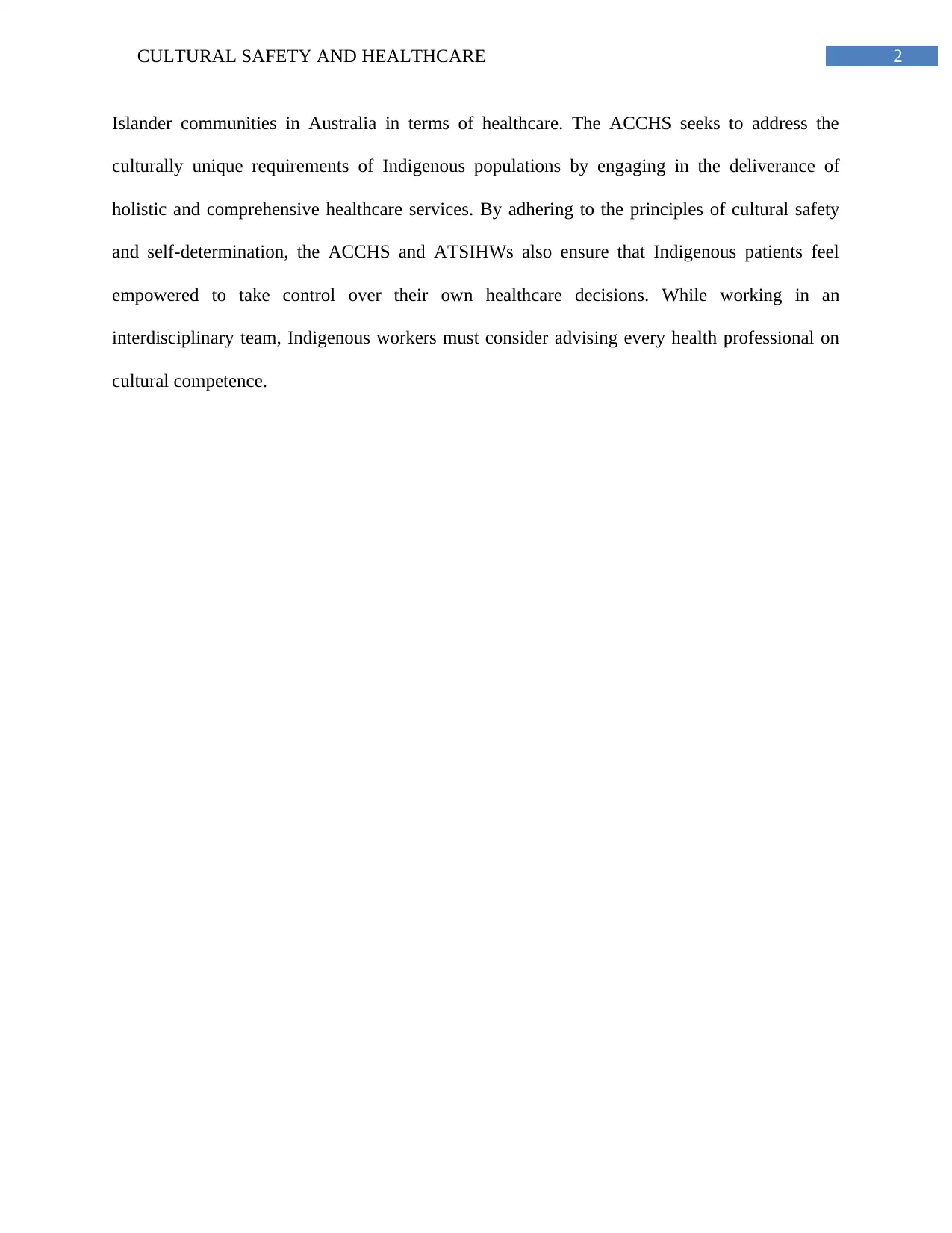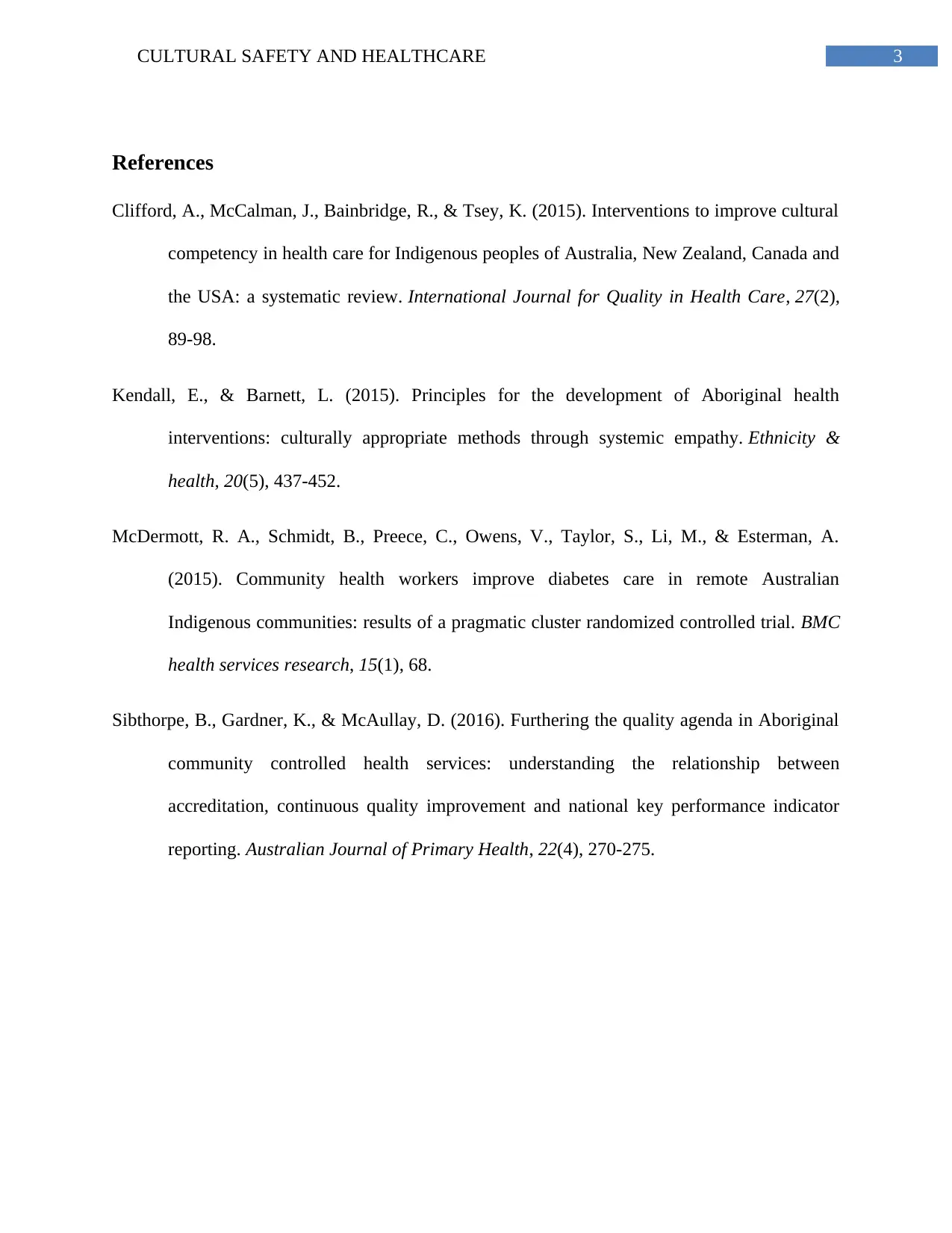Cultural Safety and Healthcare: An Analysis of Aboriginal Healthcare
VerifiedAdded on 2022/11/11
|4
|585
|96
Report
AI Summary
This report examines the critical role of Aboriginal Community Controlled Health Services (ACCHS) and Aboriginal and Torres Strait Islander Health Workers (ATSIHWs) in providing culturally safe and appropriate healthcare to Indigenous populations in Australia. The report emphasizes the importance of cultural competence and sensitivity in addressing the unique healthcare needs of Aboriginal communities, highlighting the significance of person-centered approaches that empower patients in their healthcare decision-making. It underscores the need for ACCHS to adopt culturally competent practices, ensuring that Indigenous patients feel respected, empowered, and dignified. The report also references the importance of interdisciplinary teamwork, with Indigenous workers advising other health professionals on cultural competence. References from various scholarly articles support the report's findings, reinforcing the need for culturally sensitive healthcare practices within the context of Aboriginal health.
1 out of 4











![[object Object]](/_next/static/media/star-bottom.7253800d.svg)